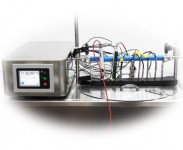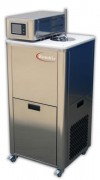

We are often asked either of two questions:
- Should we calibrate our thermometer or
- How often should we calibrate our datalogger?
We know that over time all temperature sensors will physically change their characteristics due to the environment they are exposed to. The changes can be quite subtle but accumulative. Sensors on the market today are made of metals and plastics, both of which will degenerate over time. Metals may oxidise and crack and plastics or polymers may change shape, crack etc. This is on top of anything a user might do as well. The changes might be very small, but like any ageing process, they will have a effect. However it is the extent of this change that can only be identified by independent checking or calibration. We recommend annual calibration of instruments.
Recommended Calibration Frequency
LogTag Data Loggers - annually
Cryopak/Escort Data Loggers - annually
What is calibration?
Calibration is the activity of checking, by comparison with a standard or reference, the accuracy of a measuring instrument of any type. It may also include adjustment of the instrument to bring it into alignment with the standard. This checking or calibration is typically performed in a stable environment like a precision calibration bath.
Typically loggers used in medical practices are compared to the value recorded with a reference thermometer and the difference (or error) is noted on the calibration certificate. This process is what is called in the industry as “As Found”. The technician may also compare this value against the stated manufacturers accuracy specification and if outside will red flag it on the calibration certificate. If the error is too high, the technician may even refuse to issue a certificate. If the instrument can be adjusted electronically, then the technician will undertake a 2nd check and record this information as well. This is called “As Left”. Generally pharmaceutical and medical device companies require both "As Found" and "As Left" calibration certificates to meet their strict GMP procedures.
Contact our Cold Chain Solutions Calibration Laboratory for a quote [email protected]
